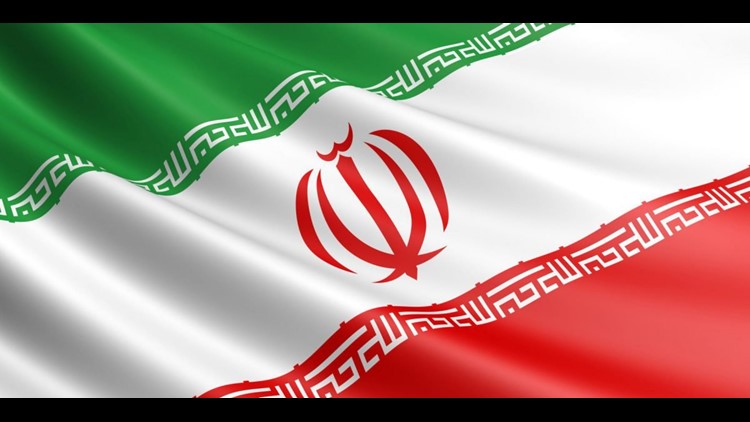President Donald Trump plans to “decertify” the Iran nuclear deal next week, declaring the Obama-era pact not in US interests and launching a congressional review period on the accord, according to two senior US officials.
Trump is tentatively scheduled to unveil his plan during remarks a week from Thursday, though one official cautioned the timing could shift.
The decision, which was first reported by The Washington Post, stops short of completely scrapping the Iran deal, which Trump railed against on the campaign trail.
By decertifying the deal, Trump would kick the matter to Congress, which would then have 60 days to determine a path forward.
White House press secretary Sarah Sanders said Thursday the President had made a decision on the agreement and would announce it “soon.”
“The President’s team has presented a united strategy that the national security team all stands behind and supports,” she said.
Trump will spell out a broader strategy for confronting Iran, including its ballistic missile program and support for terror networks in the Middle East, as he unveils his decision on the Iran deal, according to one senior US official. The official didn’t specify what precise steps he may take.
Under the new Iran strategy the current deal will stay in place, with efforts being made within the framework of the existing agreement to try and strengthen inspections and plan for what happens when it expires, a senior US official told CNN on Thursday.
But a senior Democratic aide told CNN on Thursday that lawmakers on the other side of the aisle “believe the President should make the certification, full stop.”
“We are not participating in preemptive negotiations, with no text, based on the assumption that the President is not going to make the certification,” the aide said. “The maximum point of leverage to address Iran’s nefarious activities is now, before his expected terrible decision — not after, when he undermines America’s credibility to uphold its commitments with our allies and partners.”
How will European nations react?
Last month, foreign ministers representing countries that are party to the deal — Britain, France, Germany, Russia, China and Iran — argued that the agreement was designed to address issues solely related to Iran’s nuclear program, according to several diplomats who attended the meeting that took place on the sidelines of the UN General Assembly.
By all accounts — even that of the United States — Iran had lived up to its commitments under the agreement, and European leaders signaled they were not interested in expanding the scope of its implementation, they said.
“Not certifying would pass the decision on the JCPOA over to Congress, with the risk that they decide to re-impose nuclear sanctions leading to US abrogation of the JCPOA,” one European diplomat told CNN on Thursday.
“If not certifying is part of a larger plan with Congress to stay within the deal, this would not be a direct breach. However, all the evidence to date is that Iran is in compliance with the terms of the JCPOA,” the diplomat added.
“The JCPOA is a hard-fought international agreement that is vital to our security and that of our allies; our priority is working with the deal and making it deliver for our shared security interests,” the diplomat said.
What will Congress do?
On Tuesday, CNN reported that Secretary of State Rex Tillerson and Senate Foreign Relations Committee Chair Bob Corker were spearheading efforts to amend US legislation regarding Iran to shift focus away from the nuclear issue — a move that could allow the US to stay in the multilateral nuclear deal forged in 2015 and also push back against Iran’s other destabilizing behavior, officials and diplomats said.
“Tillerson has said the problem with the JCPOA is not the JCPOA,” one senior administration official said, using the acronym for the 2015 nuclear deal, known as the Joint Comprehensive Plan of Action.
“It’s the legislation,” the official said. “Every 90 days the president must certify and its creates a political crisis. If the administration could put the nuclear deal in a corner, everyone could happily get back to work on dealing with everything else that is a problem with Iran.”
Instead of certifying that Iran is meeting its technical commitments under the nuclear deal, the administration would report to Congress regularly about broader aggressive Iranian behavior — such as support for terrorism and its ballistic missile program — and what the administration is doing to counter it.
This approach could allow the US to stay in the deal but help Trump avoid the political headache of having to re-certify it every 90 days.
It might also keep the Europeans, who want to keep the deal, on board with administration efforts to fight Iran’s other destabilizing activities.
During a hearing before the Senate Armed Services Committee on Tuesday, Defense Secretary James Mattis said that he believes it is in the US national security interest to remain in the agreement.
Sen. Angus King asked Mattis: “Do you believe it is in our national security interest at the present time to remain in the (agreement)? That is a yes or no question.”
Mattis replied, “Yes, senator, I do.”
“The point I would make is if we can confirm that Iran is living by the agreement, if we can determine that this is in our best interests then clearly we should stay with it,” Mattis added. “I believe at this point in time absent indications to the contrary, it is something the President should consider staying with.”
But Mattis went on to explain that he also supports a rigorous review of national security issues related to Iran that may fall outside the exact terms of the agreement.
“The President has to consider more broadly things that rightly fall under his portfolio of looking out for the American people in areas that go beyond the specific letters of the JCPOA — in that regard I support the rigorous review that he has got going on right now,” he said.



